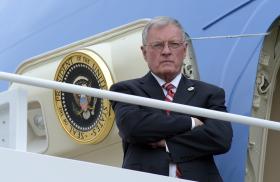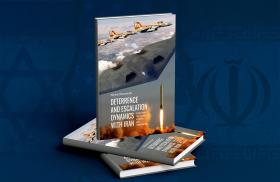
TWI Series on Syrian Safe Havens/Zones

Understand the policy implications of humanitarian safe havens, safe zones, buffers, or no-fly zones in Syria with these assessments of the who, what, where, why, and how of the various options.
Intervention to Assist Fleeing Syrians: Who, What, Where, Why, and How
Col. Nora Marcos
Establishing humanitarian corridors, safe havens, safe zones, or buffer or no-fly zones could turn the tide of Syria's humanitarian crisis, but it could also pose numerous complications and create second- and third-order effects for the region.
Establishing and Securing Safe Zones in Syria: Historical Lessons
John Barnett and Michael Eisenstadt
Experience in Iraq, Bosnia, and Libya shows that safe-zone operations require unambiguous legal authorities, clear political and military guidance, robust air and ground forces, and a viable plan for displaced persons and refugees.
The Israeli Perspective on Safe Zones in Syria
Nadav Pollak
Despite the potential benefits of a safe zone along the Jordan-Syria border, Russia's presence in the war would probably limit Israel's ability to openly support or contribute to such an initiative.
A Safe Zone in Southern Syria
David Schenker and and Andrew J. Tabler
As the Assad coalition and the Islamic State turn their attention southward, Jordan and the thousands of displaced Syrians waiting outside its border face an increasingly perilous security situation.
How to Prevent al-Qaeda from Seizing a Safe Zone in Northwestern Syria
Fabrice Balanche
Strong ground support for moderate rebels would be needed to keep any buffer zone in the northwest from falling under the control of al-Qaeda's Syrian affiliate.
Kerry Neither Rules Out nor Supports Safe Zone Concept
James F. Jeffrey
The assertion that such an effort would require up to 30,000 U.S. troops, and that it could risk a direct confrontation with Russia, requires a much closer look.
Two Potential Safe Zones in Northern Syria
Fabrice Balanche
Both Idlib province and eastern Aleppo province have been relatively spared from the fighting, and their rural communities remain strong.
The First Step Should Be to Create Buffer Zones in Syria
Andrew J. Tabler
Any safe zones would need to be secured by the military forces of Syria’s neighbors, such as Turkey and Jordan, as well as by U.S. air and ground support.
Safety First in Syria
Anna Borshchevskaya
However difficult it might be to implement safe zones after years of inaction, the humanitarian disaster will only grow without them, as will the threat to regional and European stability.
A Turkish 'Secure Strip' in Syria: Domestic Concerns and Foreign Limitations
Soner Cagaptay and Cem Yolbulan
Although Ankara has the necessary parliamentary authorization and professional military capacity to establish a safe zone, it would still need Western intelligence help, air support, and diplomatic backing to cover the operation and deter Russian retaliation.
Legal Justifications for a Safe Zone in Syria
James F. Jeffrey
UN Security Council Resolutions 2170, 2249, and 2254 offer ample grounds for establishing a zone to protect refugees and counter the Islamic State, but shaping the international diplomatic response would be paramount given the legal gray areas inherent in such action.
Countering Russian and Assad Regime Responses to Safe Zones
Anna Borshchevskaya
For such zones to succeed, they must be backed with militarily enforced no-fly zones and a persuasive response to Moscow's inevitable small-scale violations and disinformation campaign.
The Diplomatic Case for America to Create a Safe Zone in Syria
Nicholas Burns and James F. Jeffrey
The potential risks of inaction -- including thousands more civilians killed, millions more refugees, the spillover of fighting into Turkey, Jordan, and Israel, and a Russian-Iranian military victory -- greatly outweigh the dangers of moving forward.












